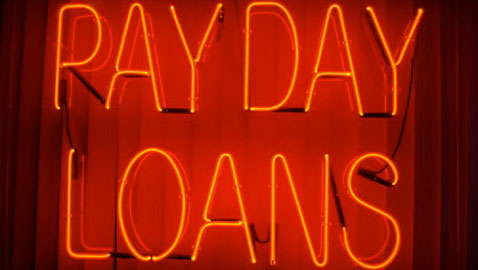
A network of new Community Banks should be created across the country as an alternative to high cost credit driving millions of people into problem debt, according to a new report.
It claims red tape holding back successful credit unions should be torn up so that they can be reborn as ethical Community Banks offering more stable loans and banking services at cheaper rates and on better terms.
This is part of a major package of personal debt reforms put forward by the Centre for Social Justice (CSJ) that aims to bring fairer banking to Britain’s poorest communities and challenge the monopoly of mainstream banks and payday lenders.
“There is a growing group of people under intense pressure as a result of problem debt,” said Christian Guy, CSJ director.
“This debt rips into families and traps people on the edges of our society. Many don’t know where to turn. “Worse, people in poorer communities are effectively excluded from mainstream banking – hit hard by punitive fees, penalties and crippling debt.”
Household debt in the UK has almost doubled in a decade to £1.44 trillion and around seven million people use high-cost credit, such as payday loans. The CSJ criticises a lack of competition in financial services and says products for many poorer people are harsh, which is why millions either have no bank account or are forced to use accounts which regularly charge excessive penalties.
Credit unions currently serve more than a million customers lending a total of £600 million. Because of current regulations, however, unions are limited and often unable to serve the poorest in society who would most benefit from them. But with reform and the transformation of the bigger and best managed unions into Community Banks, they could potentially help up to eight million people in a market worth as much as £3.5 billion, the CSJ claimed.
It said one major benefit is these new Community Banks would be able to offer smaller loans commonly handed out by payday lenders, but with much lower interest rates and better conditions. To do this the CSJ wants to see a number of credit union regulations stripped back. This includes relaxing membership rules, removing interest rate caps for small loans and allowing them to invest members’ deposits to generate income.
The Community Bank status will only be available to select credit unions who have been run well and would benefit from operating on a larger scale. The CSJ estimates there would be around a dozen of these banks across the country initially.
Researchers say the package – which includes using peer-to-peer social investment to help expand community finance – would help many of the two million people every year who turn to high-cost credit because it is the only loan they can get.
“The time for quick political fixes is over,” added Guy. “A new government should focus on preventing problem debt, creating a savings culture and a new market of Community Banks. It should also ensure more help and advice reaches people already struggling with toxic debt.”
